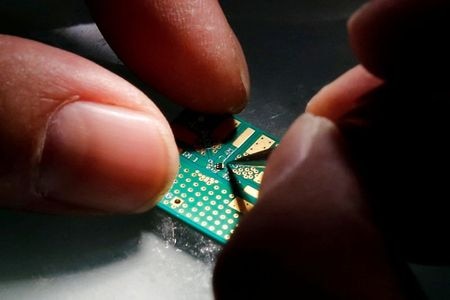Chipmaker Arm looks to transfer shares in China division to accelerate IPO plans

British chipmaker Arm is preparing to transfer shares in its China division to a special purpose vehicle set up by its owner Softbank, as it looks to accelerate its move onto the public markets.
Arm is being lined up to float in New York by Softbank after a blockbuster takeover bid by US rival Nvidia fell through earlier this year.
The firm has been battling to regain control of its China business due to its inability to audit the financials of the firm, the Financial Times reported.
Transferring shares from the firm will leave the division tied to Arm via a licensin agreement rather than the 47.3 per cent equity stake it currently holds, two sources told the FT.
The move is expected to free up Softbank to push ahead with the float, which is most likely to go ahead in New York on the Nasdaq exchange.
Softbank-owner Masoyoshi Son has been locked in a dispute with Allen Wu, the head of Arm China, and negotiations with Wu over his exit broke down last year as the company looked to dislodge him from his post.
Wu disregarded a a 7-1 vote by Arm China’s board to remove him in June 2020.
Sources close to the deal said the Chinese government viewed the dispute as an opportunity to extract concessions from Arm.
The chipmaker has been viewed as a strategically important asset in the UK due to the global strains on chip manufacturing capacity, and politicians have been piling pressure on the firm for a London listing.
Anthony Browne, the Conservative MP for Cambridge South, where Arm is based told City A.M last month that it was vital that the UK was listed in London.
“Following the collapse of the Arm sale, it is vital that this leading British technology company be floated in London,” he said.
“Ownership matters, particularly when it comes to such a strategically important company and major employer, and as a nation we have historically been far too casual about such offerings.
“As a national asset and one of the last great European semiconductor companies, I would expect any flotation to be compatible with not only the interest of investors, but also our national interest.”